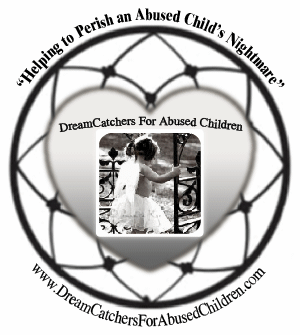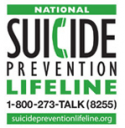Warning Signs of Sex Abuse
Warning Signs in Children of Possible Sexual Abuse
 Stop It Now! has developed a warning signs tip sheet to help identify possible warning signs. Any one sign does not mean that a child was sexually abused, but the presence of several suggests that you begin asking questions and consider seeking help. Any one sign doesn’t mean that a child was sexually abused, but the presence of several suggests that you begin asking questions and consider seeking help. Young children often do not report sexual abuse to a parent because they are ashamed, feel loyal to the person who is abusing them, or have been threatened not to tell. You may notice some changes in your child, however as a parent it is imperative that you are aware of what signs to look for that may indicate child sexual abuse.
Stop It Now! has developed a warning signs tip sheet to help identify possible warning signs. Any one sign does not mean that a child was sexually abused, but the presence of several suggests that you begin asking questions and consider seeking help. Any one sign doesn’t mean that a child was sexually abused, but the presence of several suggests that you begin asking questions and consider seeking help. Young children often do not report sexual abuse to a parent because they are ashamed, feel loyal to the person who is abusing them, or have been threatened not to tell. You may notice some changes in your child, however as a parent it is imperative that you are aware of what signs to look for that may indicate child sexual abuse.
Behavior you may see in a child or adolescent:
- Has nightmares or other sleep problems without an explanation
- Seems distracted or distant at odd times
- Has a sudden change in eating habits
- Refuses to eat
- Loses or drastically increases appetite
- Has trouble swallowing
- Sudden mood swings: rage, fear, insecurity, or withdrawal
- Leaves “clues” that seem likely to provoke a discussion about sexual issues
- Develops new or unusual fear of certain people or places
- Refuses to talk about a secret shared with an adult or older child
- Writes, draws, plays, or dreams of sexual or frightening images
- Talks about a new older friend
- Suddenly has money, toys, or other gifts without reason
- Thinks of self or body as repulsive, dirty, or bad
- Exhibits adult-like sexual behaviors, language, and knowledge
What to look for in adults and children
What is considered child sexual abuse?
Child sexual abuse includes touching and non-touching activity. Some examples of touching activity include:
- touching a child’s genitals or private parts for sexual pleasure
- making a child touch someone else’s genitals, play sexual games or have sex putting objects or body parts (like fingers, tongue or penis) inside the vagina, in the mouth or in the anus of a child for sexual pleasure
Some examples of non-touching activity include:
- showing pornography to a child
- deliberately exposing an adult’s genitals to a child
- photographing a child in sexual poses
- encouraging a child to watch or hear sexual acts
- inappropriately watching a child undress or use the bathroom
Warning signs in children and adolescents of possible child sexual abuse
What to watch out for in children:
- Acting out in an inappropriate sexual way with toys or objects
- Nightmares, sleeping problems
- Becoming withdrawn or very clingy
- Becoming unusually secretive
- Sudden unexplained personality changes, mood swings and seeming insecure
- Regressing to younger behaviors, e.g. bedwetting
- Unaccountable fear of particular places or people
- Outburst of anger
- Changes in eating habits
- New adult words for body parts and no obvious source
- Talk of a new, older friend and unexplained money or gifts
- Self-harm (cutting, burning or other harmful activities)
- Physical signs, such as, unexplained soreness or bruises around genitals or mouth, sexually transmitted diseases, pregnancy
- Running away
- Not wanting to be alone with a particular child or young person
Any one sign doesn’t mean that a child was or is being sexually abused, but the presence of several suggests that you should begin to ask questions and consider seeking help. Keep in mind that some of these signs can emerge at other times of stress such as:
- During a divorce
- Death of a family member or pet
- Problems at school or with friends
- Other anxiety-inducing or traumatic events
Physical warning signs
- Pain, discoloration, bleeding or discharges in genitals, anus or mouth
- Persistent or recurring pain during urination and bowel movements
- Wetting and soiling accidents unrelated to toilet training
Signs that an adult may be using their relationship with a child for sexual reasons
The signs that an adult is using their relationship with a child for sexual reasons may not be obvious. We may feel uncomfortable about the way they play with the child, or seem always to be favouring them and creating reasons for them to be alone. There may be cause for concern about the behaviour of an adult or young person if they:
- Refuse to allow a child sufficient privacy or to make their own decisions on personal matters.
- Insist on physical affection such as kissing, hugging or wrestling even when the child clearly does not want it.
- Are overly interested in the sexual development of a child or teenager.
- Insist on time alone with a child with no interruptions.
- Spend most of their spare time with children and have little interest in spending time with people their own age.
- Regularly offer to baby-sit children for free or take children on overnight outings alone.
- Buy children expensive gifts or give them money for no apparent reason.
- Frequently walk in on children/teenagers in the bathroom.
- Treat a particular child as a favourite, making them feel ‘special’ compared with others in the family.
- Pick on a particular child.
Child abuse among children and young people
Age appropriate sexual behavior
We all know that children pass through different stages of development as they grow, and that their awareness and curiosity about sexual matters change as they pass from infancy into childhood and then through puberty to adolescence. Each child is an individual and will develop in his or her own way. However, there is a generally accepted range of behaviors linked to a child’s age and developmental stage. Sometimes these will involve some exploration with other children of a similar age. It can be difficult to tell the difference between age appropriate sexual exploration and warning signs of harmful behavior. Occasionally we may need to explain to children why we would prefer them not to continue with a particular behavior.
This is a chance to talk with them about keeping themselves and others safe and to let them know that you are someone who will listen. Disabled children may develop at different rates, depending on the nature of their disability, and they can be more vulnerable to abuse. Children with learning disabilities, for example, may behave sexually in ways that are out of step with their age. Particular care may be needed in educating such children to understand their sexual development and to ensure that they can communicate effectively about any worries they have.
It is important to recognise that while people from different backgrounds have different expectations about what is acceptable behaviour in children, sexual abuse happens across all races and cultures. Remember that each child develops at his or her own pace and not every child will show the behaviours described below. If you have any worries or questions about a child you know, talk to someone about it.
Pre-school children (0-5) years commonly:
- Use childish ‘sexual’ language to talk about body parts
- Ask how babies are made and where they come from
- Touch or rub their own genitals
- Show and look at private parts
They rarely:
- Discuss sexual acts or use sexually explicit language
- Have physical sexual contact with other children
- Show adult-like sexual behaviour or knowledge
School-age children (6-12 years) commonly:
- Ask questions about menstruation, pregnancy and other sexual behavior
- Experiment with other children, often during games, kissing, touching, showing and role playing
- Masturbate in private
They rarely:
- Masturbate in public
- Show adult like sexual behaviour or knowledge
Adolescents:
- Ask questions about relationships and sexual behavior
- Use sexual language and talk between themselves about sexual acts
- Masturbate in private
- Experiment sexually with adolescents of similar age
NB. About one-third of adolescents have sexual intercourse before the age of 16.
They rarely:
- Masturbate in public
- Have sexual contact with much younger children or adults
Warning signs of sexually harmful behaviour
One of the hardest things for parents to discover is that their child may have sexually harmed or abused another child. In this situation, denial, shock and anger are normal reactions. If it is not responded to quickly and sensitively, the effect on the whole family can be devastating. For this reason it is vital to contact someone for advice about what to do as soon as you suspect that something is wrong. The positive message is that early help for the child or young person and their family can make a real difference. Evidence suggests that the earlier children can get help, the more chance there is of preventing them moving on to more serious behaviour. It is important to be alert to the early warning signs that something is going wrong. If you are in this situation, remember that you are not alone. Many other parents have been through similar experiences, and, as a result, the child and family found the help they needed are were able to rebuild their lives. The first step is to decide that it would be helpful to talk it over with someone else.
Do you know a child or adolescent who:
- Seeks out the company of younger children and spends an unusual amount of time in their company?
- Takes younger children to ‘secret’ places or hideaways or plays ‘special’ games with them (e.g. doctor and patient, removing clothing etc.) especially games unusual to their age?
- Insists on hugging or kissing a child when the child does not want to?
- Tells you they do not want to be alone with a child or becomes anxious when a particular child comes to visit?
- Frequently uses aggressive or sexual language about adults or children?
- Shows sexual material to younger children?
- Makes sexually abusive telephone calls?
- Shares alcohol or drugs with younger children or teens?
- Views child pornography on the internet or elsewhere?
- Exposes his or her genitals to younger children?
- Forces sex on another adolescent or child?
If you answered yes to any of these questions, you should talk to the child or young person and seek advice.
What you can do if you see warning signs
If you are concerned about the sexualized behaviors in a parent, cousin, sibling, friend, or neighbor, you should consider contacting the police or children’s services in your area, they can take action if appropriate. If you choose not to do that, care enough to talk to the person whose behavior is worrying you.
FOR MORE INFORMATION ON CHILD SEX ABUSE CLICK HERE
---------------------------------------------By the time you finish reading this, 15 children will have been abused; In the next five minutes, 30 more; Within the next hour, 360 more; And by tonight, close to 8,000+ children will have suffered from abuse, 5 of which will die. Child abuse has increased 134% since 1980 and is now considered a worldwide epidemic. The high jump in child abuse deaths and the shocking increase in statistics highlights the frightening lack of public knowledge.
Educate Yourself -- Learn the Facts
It May Just Save a Child's Life!!


















![Validate my RSS feed [Valid RSS]](http://dreamcatchersforabusedchildren.com/wp-content/uploads/2009/10/valid-rss.png)












